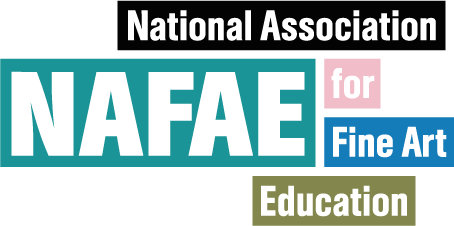Making Communities and Making with Communities
Friday 29th April 2022, Birmingham School of Art (in person) and online
One of many observations on the role of the art school and creative practices in contemporary society is that it is frequently employed as a means or tool for bridging a democratic deficit. This is, of course, true of many service professions and not only the arts, but it is noticeable how many and how often practitioners working as creative authors or artists have positioned themselves in a role that can affect or enhance communed experience. My view, from personal history as the key vantage point, is that creativity and creative behaviours have an essential and dynamic function in supporting self-determination within self-defining communities.
The conference will respond to the following themes:
Cooperation and caring for place
A place for art in social change
Art, places, and environment
As a network we are primarily interested in practice and projects; in how people are producing and how educators and fine art practitioners are responding to challenge.
This will be a hybrid event with face-to-face presentations and attendance invited from NAFAE members in person at Birmingham School of Art. There will also be online breakout rooms with attendance invited from non-members.
This event is free for NAFAE members. To register please book on our Eventbrite page. Non-members should join NAFAE (see link below) before booking.
To join NAFAE please visit https://www.nafae.org.uk/membership
Context
The Birmingham School of Art, as partner for this conference, provides a provocative home for this idea of making communities and making with communities. Since its rapid growth in the eighteenth century, Birmingham has long celebrated the diversity of its craft, manufacturing and cultural heritage. As a centre for the anti-industrialist Arts and Crafts movement and heavily influenced by pre-Raphaelitism, Birmingham, the ‘Workshop of the World’, is a city which holds a complex place in the history of British Art - William Morris being notably prompted to state that art should be “by the people and for the people”. Today Birmingham is the youngest major city in Europe, with under 25’s accounting for nearly 40% of its population.
The School of Art itself has roots in the 1843 Birmingham Government School of Design and its current home, the purpose-built Margaret Street, was opened in 1885 as the first Municipal art school in the UK and is situated in the heart of the city. In keeping with the city’s motto of ‘forward’ the courses delivered at the school support the notion of a School for Birmingham, working with communities to create symbiotic relationships with the city and its diverse population. In a time of ever accelerating change; in the age of austerity, Brexit and Covid19; it is increasingly falling to artists to bolster communities, provide creative solutions, engage otherwise unacknowledged audiences and hold an ethical mirror to a fractious society. The School of Art is actively interested in contributing to communities starting within and extending beyond the studio, considering ways that art practice can facilitate and sustain meaningful relationships to people, places and environments that are at once pragmatic and idealistic in exploring the potentials of the expanded role of the artist culturally and socially.
NAFAE is the Subject Association for Fine Art education in the UK. We advocate the interests, promotion and cultural relevance of Fine Art education at Foundation, BA, MA and PhD levels. The Association aims to be instrumental in anticipating and shaping decisions that impact on the enhancement and future development of Fine Art by engaging with a range of constituencies.
NAFAE's annual conference, hosted in collaboration with Birmingham School of Art, will investigate, through a selection of short presentations, papers and provocations, the ways in which educators and fine art practitioners make communities and make with communities. The conference will encourage debate, share best practice and explore case study examples of the ways in which fine educators and fine art practitioners foster democratic cultures of being with and working with others for individual, collective, cultural, civic, social and environmental gain. The conference will take a hybrid approach with delegates having the option to attend in person or to join online.



